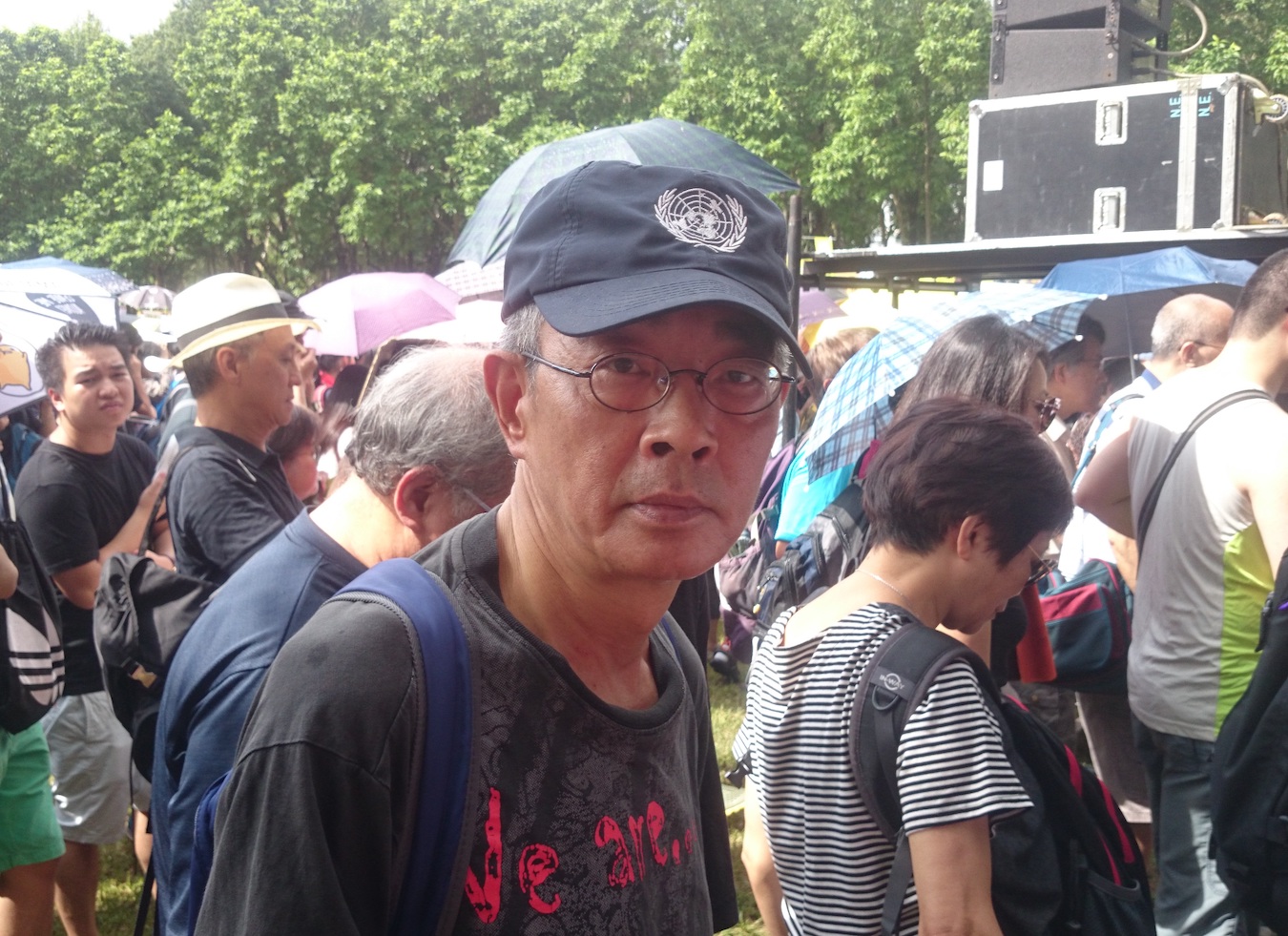by Brian Hioe
語言:
English
Photo Credit: Nhk9/WikiCommons/CC BY-SA 4.0
LAM WING-KEE, the only one of the Hong Kong Causeway Bay booksellers to remain free, applied for permanent residency in Taiwan last month. This application is on the basis of being a professional in arts and culture.
Previously, Lam resided in Taiwan on tourist visas or work visas. Lam has lived in Taiwan since 2019.
The Causeway Bay booksellers were a group of five employees of Causeway Bay Books in Hong Kong, a bookstore that published tabloid-style books critical of the Chinese government. The five disappeared between October and December 2015, later reappearing in China to publicly confess to past crimes, while stating that they had voluntarily handed themselves in.
It is thought that the Causeway Bay booksellers were kidnapped by the Chinese government as a show of force. The past crimes confessed to by the booksellers are suspected to be forced confessions, along the lines of a familiar pattern in which the Chinese government coerces dissidents into confessing to crimes they have not committed.
Gui Minhai, one of the booksellers, disappeared while in Thailand. It is unlikely that Gui could have been taken into custody by Chinese law enforcement without cooperation from Thai authorities. Lee Bo, another one of the booksellers, disappeared while in Hong Kong. This also raised concerns about the possibility of Chinese law enforcement extraditing individuals from within Hong Kong directly to China, circumventing Hong Kong law enforcement altogether; it is important to note that this took place prior to the 2019 protests that were sparked by concerns over a bill that would have allowed for extraditions of Hongkongers to China.
As for Lam, he was allowed to return to Hong Kong by Chinese authorities to retrieve a hard drive containing. Rather than return, however, he instead went public about what had taken place. Lam later moved to Taiwan in April 2019, reopening Causeway Bay Books in Zhongshan, Taipei in April 2020. After reopening the bookstore, however, Lam was attacked by a man who threw red paint at him.
Lam is a frequent speaker at political events that touch on the threats that Taiwan faces from China. To this extent, Lam has also called for greater support for Hongkongers from the Tsai administration.
 Lam Wing-kee. Photo credit: Okstartnow/WikiCommons/CC0
Lam Wing-kee. Photo credit: Okstartnow/WikiCommons/CC0
Namely, in the lead-up to the 2020 presidential elections, President Tsai Ing-wen made Hong Kong into a campaign issue. Given the events of the 2019 protests, Tsai brought up the specter of Hong Kong as the possible future that Taiwan faced if the KMT, as the pro-China party in Taiwanese politics, won. Likewise, Tsai vowed greater support for Hongkongers, in opening up further avenues for residency.
That being said, Hongkongers were mostly directed towards channels for study, work, or investment if they wished to travel to Taiwan. On the other hand, the young student activists most at risk from political persecution often did not have the means to move to Taiwan. There were cases in which student activists were denied the opportunity to travel to Taiwan and then later arrested.
This was an issue that became more accentuated once the COVID-19 pandemic began, with Hong Kong activists such as then-nineteen-year-old Tony Chung of Studentlocalism prevented from traveling to Taiwan under the auspices of COVID-19. Chung, too, was later jailed. The Tsai administration was mostly silent when it came to Hongkongers that secretly traveled to Taiwan by boat.
Indeed, many Hongkongers were prevented from traveling to Taiwan when borders were closed. The avenues for Hongkongers traveling to Taiwan and obtaining residency in Taiwan are significantly complicated by the fact that they are not technically foreign nationals, given that Taiwan is legally the ROC, and retains the ROC constitution.
The Tsai administration, then, has been accused of stating that it will support Hongkongers in order to win votes and failing to carry out this campaign promise. Moreover, in the past months, there has been a visible hardening of public opinion against Hongkongers, with the view that they could potentially prove to be Chinese spies or that an influx of Hongkongers could prove to be economic competition for Taiwanese.
Given that Lam is a high-profile activist, he will likely have fewer obstacles to obtaining residency in Taiwan compared to most Hongkongers. Yet that even Lam has encountered a number of obstacles points to the difficulties facing Hongkongers.

